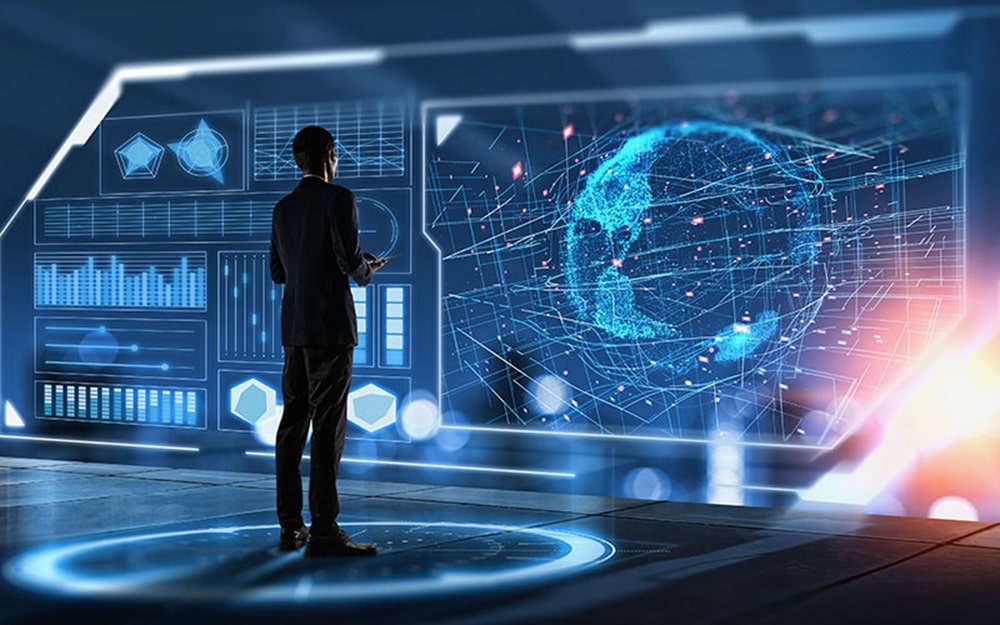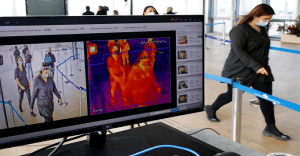Has technology gone too far? In an era dominated by constant innovation and advancements, it’s natural to question the impact of technology on our lives. From artificial intelligence to genetic engineering, the boundaries of technological progress seem to extend further each day. It’s crucial to examine whether there are limits to the integration of technology in our daily lives and the potential consequences of exceeding them.
Advancements in Technology
Technology has made significant advancements over the years, revolutionizing the way we live and work. These advancements have had both positive and negative impacts on various aspects of our lives.
Positive Impacts of Technological Advancements
- Improved Communication: With the advent of smartphones, social media, and video conferencing tools, communication has become seamless and instant. People can connect with individuals from all over the world at any time, fostering global collaboration and understanding.
- Enhanced Efficiency: Automation and artificial intelligence have streamlined processes in industries such as manufacturing, healthcare, and finance, leading to increased productivity and cost savings. Tasks that once required extensive manual labor can now be accomplished in a fraction of the time.
- Access to Information: The internet has democratized access to information, empowering individuals to educate themselves on a wide range of topics. Online learning platforms, digital libraries, and search engines have made knowledge more accessible than ever before.
- Medical Breakthroughs: Technological advancements have revolutionized the healthcare industry, leading to improved diagnostic tools, personalized treatment options, and life-saving medical devices. Patients now have access to cutting-edge treatments that were once considered science fiction.
- Environmental Sustainability: Innovative technologies have paved the way for renewable energy sources, energy-efficient transportation, and sustainable practices in various industries. This focus on sustainability is crucial for addressing environmental challenges and creating a more eco-friendly future.
Negative Impacts of Technological Advancements
- Job Displacement: Automation and artificial intelligence have led to the displacement of certain jobs, causing concerns about unemployment and income inequality. Workers in industries such as manufacturing and customer service face the risk of being replaced by machines.
- Privacy Concerns: The widespread use of technology has raised privacy and security concerns, with personal data being vulnerable to breaches and unauthorized access. The collection and manipulation of user data by tech companies have sparked debates about data privacy and surveillance.
- Information Overload: While access to information is a positive aspect of technological advancements, it has also led to information overload and digital fatigue. Sorting through vast amounts of data and navigating conflicting sources can be overwhelming for individuals seeking accurate information.
- Social Isolation: The convenience of digital communication has also contributed to social isolation, with individuals spending more time interacting virtually than engaging in face-to-face interactions. This shift in social dynamics has raised concerns about mental health and community cohesion.
- Environmental Impact: Despite advancements in sustainability, technological progress has also contributed to environmental challenges such as electronic waste, energy consumption, and carbon emissions. The manufacturing and disposal of electronic devices have led to environmental repercussions that need to be addressed.
Here are some related links for further reading:
Explore more about the impacts of technology on our environment.
Read about the future of automation and its implications.
Ethical Concerns in Technology
As technology continues to advance at a rapid pace, we have to ask again Has technology gone too far, as it has raised various ethical concerns that society grapples with. These concerns encompass privacy, automation, job displacement, and the environmental impact of technology.
Privacy Concerns – Has Technology Gone Too Far
Privacy concerns have become a focal point in the digital age, with the widespread collection and use of personal data by tech companies and online platforms. The increasing interconnectedness of devices and the internet has led to potential breaches of privacy. According to a report by TechCrunch, the rise of smart devices and the Internet of Things has created vulnerabilities in personal privacy, as these devices may inadvertently collect and transmit sensitive information without the user’s explicit consent, giving rise to concerns about data security and unauthorized access.
Automation and Job Displacement
The rapid advancement of automation and artificial intelligence has sparked concerns about job displacement. Automation has the potential to streamline processes and increase efficiency in various industries, but it also poses a threat to traditional employment opportunities. Forbes highlights that automation could potentially lead to significant job displacement, particularly in sectors where repetitive tasks can be easily automated, raising questions about the future of work and the need for retraining and upskilling the workforce.
Environmental Impact of Technology
The environmental impact of technology is another ethical concern that demands attention. The manufacturing and disposal of electronic devices contribute to e-waste, and the energy consumption of data centers and digital infrastructure has raised concerns about carbon emissions and sustainability. An article by National Geographic explores how the widespread adoption of technology has led to increased energy consumption, contributing to environmental challenges such as climate change and resource depletion.
The ethical considerations surrounding technology call for a balanced approach that prioritizes privacy, employment security, and environmental sustainability while harnessing the benefits of technological innovation.
Technological Dependence
Has technology gone too far as Technology has undeniably become deeply intertwined with our daily lives, to an extent that our dependence on it is more significant than ever before. This growing reliance on technology has raised concerns about its impact on various aspects of our lives.
Social Media and Mental Health
The omnipresence of social media platforms has brought both positive and negative effects on mental health. While it has facilitated connections and provided a platform for self-expression, the constant comparison, cyberbullying, and addiction to validation have led to detrimental outcomes. Research has shown that heavy social media use is associated with an increased risk of depression, anxiety, and feelings of loneliness. For further information on this topic, refer to Psychology Today for insights into mental health and its correlation with social media usage.
Addiction to Technology
The addiction to technology, particularly smartphones, has become a pervasive issue in modern society. The constant urge to check notifications, the fear of missing out, and the need for instant gratification have led to a dependency on these devices.
This addiction can have detrimental effects on productivity, mental well-being, and overall quality of life. Understanding the signs and consequences of technology addiction is crucial, and you can learn more about it from The Center for Internet and Technology Addiction for detailed information on technology addiction and its implications.
Impact on Human Relationships
The widespread use of technology has significantly altered the dynamics of human relationships. While it has enabled communication across vast distances, it has also led to a decline in face-to-face interactions. Constant connectivity through messaging apps and social media has led to a decrease in personal, meaningful interactions, affecting the depth and quality of relationships. To delve further into this topic, there are insightful articles available on Harvard Business Review discussing the impact of technology on interpersonal relationships.
In the subsequent sections, we will explore additional facets of the technological advancements and their implications on various aspects of our lives.
Regulation and Governance of Technology
As technology continues to advance at an unprecedented rate, the need for effective regulation and governance has become increasingly critical. This section delves into the various aspects of overseeing and managing the impact of technology on society.
Government Policies on Technology
Government policies play a crucial role in shaping the development, deployment, and use of technology. Policies related to data privacy, cybersecurity, and emerging technologies such as artificial intelligence are pivotal in safeguarding the interests of citizens and ensuring ethical practices within the tech industry. The U.S. government’s official website provides detailed insights into current technology policies and initiatives for a deeper understanding of the regulatory landscape.
Corporate Responsibility in Technological Development
Corporate entities hold significant influence in the technological realm and bear a responsibility to prioritize ethical and sustainable practices in their development efforts. This entails adhering to principles of transparency, accountability, and inclusivity, thereby fostering an environment of trust and social responsibility. For further information on corporate ethical frameworks and best practices, organizations such as the Business Roundtable provide valuable resources.
International Collaboration for Technological Ethics
Given the global nature of technology, international collaboration is paramount in establishing ethical standards and guidelines that transcend geographical boundaries. Collaborative efforts between nations, international organizations, and industry stakeholders can help in creating a unified framework for technological ethics. The World Economic Forum’s platform on the Fourth Industrial Revolution offers insights into global collaborations and initiatives promoting ethical and responsible technological advancement.
In an era where technological innovations have the potential to reshape the world, effective regulation, corporate responsibility, and international collaboration are imperative in mitigating the risks and maximizing the benefits of technological progression.
Conclusion
In conclusion on has technology gone too far, the rapid advancement of technology has undoubtedly brought about numerous benefits to society, revolutionizing the way we live, work, and communicate.
However, it is essential to maintain a critical perspective on the potential drawbacks and ethical implications of technological progress. As we continue to embrace innovation, it is crucial to weigh the impacts on privacy, security, and human interaction. Striking a balance between technological advancement and responsible usage is imperative in navigating the complexities of our digital era.













